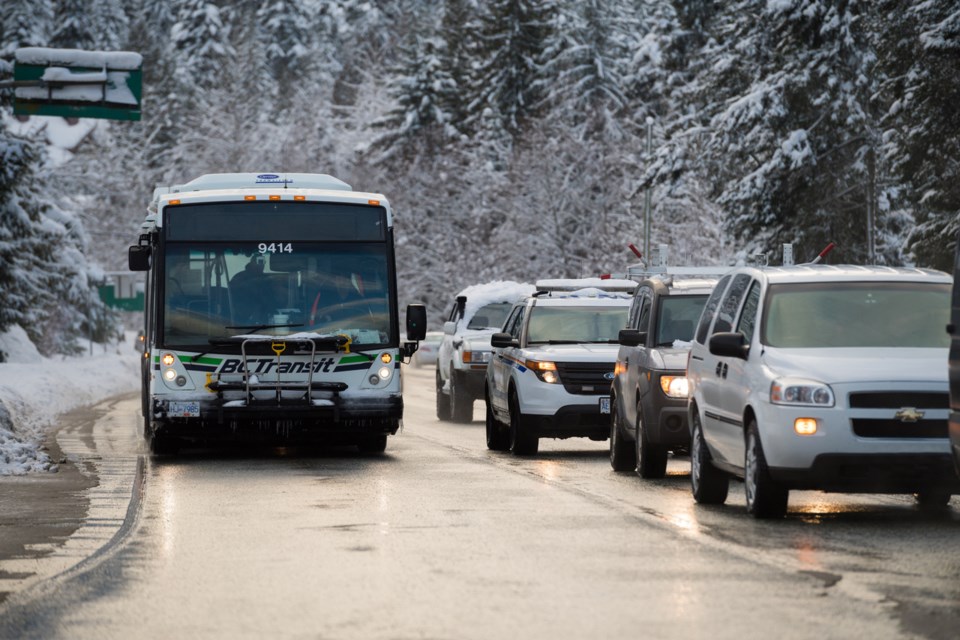The Resort Municipality of Whistler (RMOW) will see a 10-per-cent expansion of public transit hours in the community starting next month.
The increase will mean there’s another 7,650 hours of service for the 2024-25 season, with the changes taking place from April 15.
RMOW Mayor Jack Crompton described the increased transit hours as a win for Whistler.
“We have been asking the province to join us in a significant transit expansion since 2021, so to see this move forward is very exciting,” he said in a release.
“Ridership and traffic congestion has returned to 2019 levels. This means we need an increase in bus hours, reliability and consistency to improve service for current users—and for those who are looking to shift towards more sustainable transportation options.”
According to the RMOW, increasing transit hours is in line with its climate action strategy, specifically efforts to shift transportation away from personal vehicles.
“The expansion is another step towards helping our residents and guests ‘Move Beyond the Car’ in Whistler,” said Crompton.
The total cost of the 7,650-hour service expansion is estimated to be about $1,119,862.
Funding for the increase will come in part through the province's 2024-25 budget, with 46.69 per cent of additional funding coming from the province—or $553,770.
For its part, the RMOW will fund the remaining 53.31 per cent of the expansion costs, or $566,092.
According to a communications official from the RMOW, the estimated funding split could vary due to factors such as rider fares, which are collected by the contractor.
With the 7,650 hours added, annual transit hours in Whistler will jump to 82,450 hours.
According to the RMOW, the added hours will be put towards more Route 10 Valley Express services year-round from 5:30 a.m. to 11 p.m.; 30-minute service year-round on Route 6 and Route 7; more Route 21 service in the evening with the last bus leaving Whistler village at 1:10 a.m. year-round; the reintroduction of peak hour service through Spruce Grove via Route 32; and an earlier bus on Route 5 at 8:55 a.m.
Leaning into transit is part of the RMOW’s ‘big moves’ climate strategy, which is a plan to reduce community and corporate emissions in Whistler to 50 per cent below 2007 levels.
Notably, the municipality has acknowledged it is behind on meeting those targets, four years after initially adopting them in 2020.
Mayor Crompton said the additional transit hours are a part of efforts to bring the community in line with climate goals.
“By investing in a more robust and convenient transit system, we are empowering Whistlerites to move beyond the car," he said. "The recent report from our Climate and Environment team indicates that we need to up our game on reducing our local GHGs, and choosing more sustainable modes of transportation, like transit, is one powerful way to move the needle."
Transit in Whistler is provided through a partnership between the provincial body, BC Transit, and the RMOW with funding shared. Whistler Transit is contracted to operate the local system.




